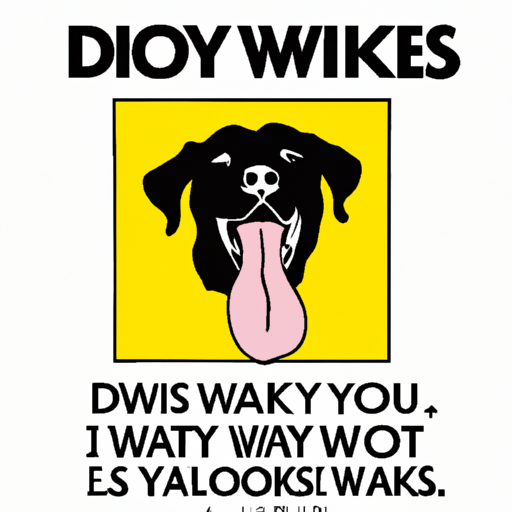Introduction
You’re sitting on your couch, enjoying a quiet moment when suddenly, your furry friend jumps up and starts showering you with wet, slobbery kisses. You may find this behavior endearing, or perhaps a little annoying, but have you ever wondered why dogs always lick you?
Understanding Your Dog’s Behavior
Dogs are complex creatures with a language all their own. Licking is a significant part of their communication. Understanding why your dog licks can help you better connect with your pet and respond appropriately.
-
Affection: Dogs often lick people they care about as a form of affection. It’s their way of showing love and forging a bond.
-
Taste: You might taste good to your dog! Sweat on human skin can be salty, and dogs may lick you because they enjoy the flavor.
-
Submissiveness: In the dog world, licking can also be a sign of deference or submission to a dominant individual.
-
Exploration: Dogs explore their world with their mouths and noses. Licking something or someone gives them a sense of what that thing or person is.
-
Attention-seeking: Dogs may also lick to get your attention. If you react every time your dog licks you, they learn that it’s a successful way of getting you to focus on them.
How to Respond to Your Dog’s Licking
As a caregiver, it’s important to respond to your dog’s licking in a way that positively reinforces their behavior, while setting boundaries.
-
Positive reinforcement: If you don’t mind your dog licking you, positively reinforce this behavior by giving them attention or a treat.
-
Setting boundaries: If you’d rather not be covered in doggy kisses, gently but firmly redirect your dog’s behavior. You might provide a toy for them to chew on instead.
-
Consult a professional: If your dog’s licking becomes excessive or compulsive, it may be a sign of anxiety or other issues. In this case, consider consulting with a professional.
| When to Respond | How to Respond |
|---|---|
| Your dog licks you occasionally | Reinforce or redirect, as desired |
| Your dog licks you excessively | Consult a professional |
The Health Implications of Dog Licking
While dog licks can be a sign of love, there are potential health implications to consider:
-
Zoonotic diseases: These are diseases that can be transmitted from animals to humans, some of which can be passed through licking.
-
Allergies: Some people are allergic to dog saliva and may break out in rashes or experience other allergic reactions when licked by a dog.
-
Wound infection: If you have an open wound, it’s best to keep it away from your dog’s mouth. Despite the old wives’ tale, dog saliva is not antiseptic and can introduce bacteria into a wound.
FAQ
Q: Can I get sick from my dog licking me?
A: It’s rare, but possible. Some diseases can be transmitted from dogs to humans through saliva.
Q: How can I stop my dog from licking me?
A: Gently redirect your dog’s behavior and consult a professional if needed.
Q: Is dog licking a sign of dominance?
A: Not usually. More often, it’s a sign of affection, exploration, or submission.
Q: Can dog licking cause allergies?
A: Yes, some people are allergic to dog saliva and may react to being licked.
In conclusion, dogs lick for a variety of reasons, most of them rooted in affection and communication. As a caregiver, understanding this behavior can help you build a stronger, healthier relationship with your furry friend.



